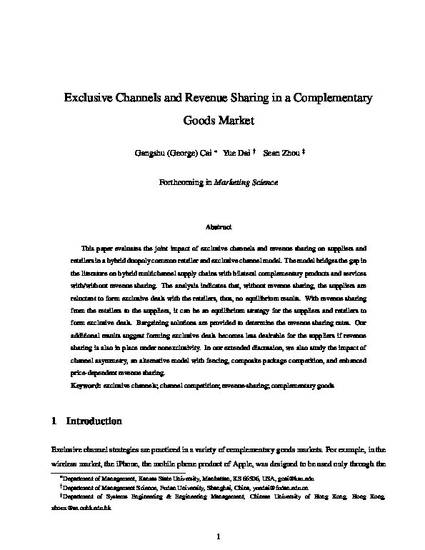
This paper evaluates the joint impact of exclusive channels and revenue sharing on suppliers and retailers in a hybrid duopoly common retailer and exclusive channel model. The model bridges the gap in the literature on hybrid multichannel supply chains with bilateral complementary products and services with or without revenue sharing. The analysis indicates that, without revenue sharing, the suppliers are reluctant to form exclusive deals with the retailers; thus, no equilibrium results. With revenue sharing from the retailers to the suppliers, it can be an equilibrium strategy for the suppliers and retailers to form exclusive deals. Bargaining solutions are provided to determine the revenue sharing rates. Our additional results suggest forming exclusive deals becomes less desirable for the suppliers if revenue sharing is also in place under nonexclusivity. In our extended discussion, we also study the impact of channel asymmetry, an alternative model with fencing, composite package competition, and enhanced price-dependent revenue sharing.

Copyright © 2012 INFORMS. Reprinted with permission.
https://doi.org/10.1287/mksc.1110.0688